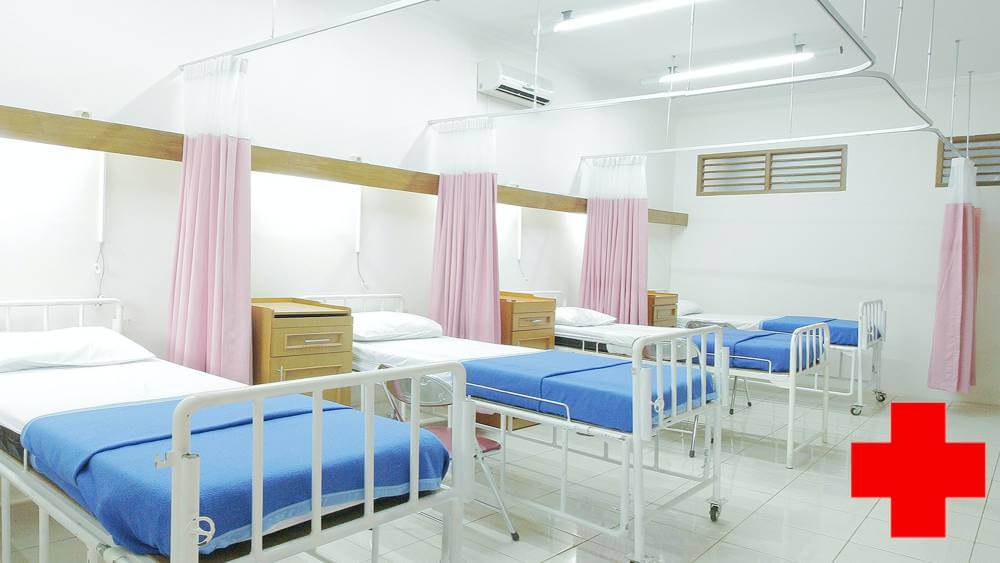Hello there, welcome to another exhilarating read about Adult-Gerontology Acute Care Nurse Practitioners!
Today, we’ll walk you through every aspect of the life and career of an Adult-Gerontology Acute Care Nurse Practitioner.
At the end of this article, we must have gone over what an Adult-Gerontology Acute Care Nurse Practitioner is, Nurse duties, why you should become one, Nursing career and job prospects, and some common Adult-Gerontology Acute Care Nurse Practitioner frequently-asked questions.
We’ll take you through:
- What is an Adult-Gerontology Acute Care Nurse Practitioner?
- Job descriptions of an Adult-Gerontology Acute Care Nurse Practitioner
- The salary outlook for an Adult-Gerontology Acute Care Nurse Practitioner
- Adult-Gerontology Acute Care Nurse Practitioner Programs
Let’s get started right away!
What is an Adult-Gerontology Acute Care Nurse Practitioner?

Adult and gerontology patients with medically complex, unstable, and stable critical, acute, and chronic illnesses are cared for by the Adult-Gerontology Acute Care Nurse Practitioner in a variety of settings.
These care settings include sub-acute, hospitals, clinics, home care, and ambulatory care.
The AGACNP offers a wide range of services, including critical and acute care treatment and illness prevention.
Acute Care Gerontology Nurse Practitioner Role and Job Description (What Does an Adult-Gerontology Acute Care NP Do?)

Older adult, adult, and elderly patients with chronic, critical, and acute conditions get advanced Nursing care from Adult-Gerontology Acute Care Nurse Practitioners.
Acute Care Nurse Practitioners (ACNPs) are distinguished from PCNPs (Primary Care Nurse Practitioners) by the phrase “acute.”
In order to improve and stabilize the health of patients, AG-ACNPs are expected to collaborate with a variety of health care experts.
To identify a suitable course of action, Adult-Gerontology Acute Care Nurse Practitioners may frequently need to assess and gather information established on the patient’s symptoms, history, physical findings, or diagnostic data.
Adult-Gerontology Acute Care Nurse Practitioners constantly change the patient-control scheme to match the patient’s particular demands by efficiently and continuously analyzing the patient’s responses to treatment and dynamic status.
How to Become AG-ACNP

Eligibility Requirements for Adult-Gerontology Acute Care Nurse Practitioners
To evolve as AG-ACNP, you must complete a series of stages.
An NP Program has numerous requirements, including certification, prior education, and clinical experience.
The path to becoming an Adult-Gerontology Acute Care Nurse Practitioner looks thus:
Stage 1:
You are expected to have finished a Registered Nursing degree and be licensed as an RN in a United States state or its territory to submit an application to an Adult-Gerontology Acute Care Nurse Practitioner Program.
It is strongly advised that you work for twelve to twenty-four months before putting up an application to an NP Program.
Stage 2:
Submit an Application to AGACNP Programs Approved by the ACEN (Accreditation Commission for Education in Nursing) or the CCNE (Commission on Collegiate Nursing Education)
Master’s degree (MSN), Postgraduate (Post-Master’s), or Doctor of Nursing Practice (DNP) Programs are required.
Continue reading to find more facts about Adult-Gerontology Acute Care Nurse Practitioner coursework prerequisites and programs.
Stage 3:
Complete 500 clinical hours under the supervision of a faculty member in an Adult-Gerontology Acute Care Nurse Practitioner population and role.
Stage 4:
Apply to the ANCC or the AACN’s AGACNP (Adult-Gerontology Acute Care Nurse Practitioner) Test.
The exam assesses knowledge of diagnostic techniques and evaluation, as well as theory, pharmacology, and other topics.
Final transcripts are required, as well as confirmation of schooling.
Stage 5:
In the state where you want to work, apply for certification in your state as an AG Acute Care Nurse Practitioner.
Stage 6:
Once certified, you must renew your certification every sixty months.
Renewal via the state board is necessary together with renewal via the board and may demand extra completion of contact hours in continuing education.
Adult-Gerontology Acute Care NP Scope of Practice

Adult-Gerontology Acute Care Nurse Practitioners (AGACNP) provide advanced Nursing practice care to patients with chronic or episodic illnesses, critical circumstances, and acute medical needs in a variety of clinical settings.
Physician offices, clinics, retirement homes, hospitals, private clinical practices, and hospices are examples of these locations.
Adult-Gerontology Acute Care Nurse Practitioners are trained to deliver specific healthcare responsibilities to chronically and acutely ill patients.
Their roles are limited to interpreting ECG monitoring, writing prescriptions, and analyzing patient responses to medications and other supplementary treatments, together with doing advanced practice Nursing tasks.
Acute Gerontology Nurse Practitioner Education Requirement

You can even apply to an NP Program after finishing school and passing the board exams to become an RN and work for at least twelve to twenty-four months.
Before evaluating you for admission to an ACNP Program, some institutions will need you to actively work with ill individuals for a specific duration or have expertise in a certain context, such as acute or critical care.
ACNP Programs are available on-campus, online, or in a crossbreed of the two around the country.
Nevertheless, applicants should be aware that the program will involve several hours of practice time, and scholars will be directed to get a preceptor in line with that part of their study.
Some schools assist students in finding a preceptor, while others do not.
Although the core subjects and curriculum may differ significantly amongst programs, students should expect to satisfy between 39 and 51 credit hours.
Pharmacology, advanced physical review courses, research, and theory relating to the concentration area, as well as a practical clinical placement engaged at the conclusion of the degree program, will be covered in core lectures.
Adult-Gerontology Acute Care Nurse Practitioner Programs require clinical hours or onsite training with real patients.
Scholars will treat and assess real ill patients with the help of a preceptor after being assigned one.
Depending on the school, the needed practicum duration can meander from 300,000 to 360,000 minutes or more.
Some may specify the needed number of hours per week scholars must spend anywhere from 14 to 23 hours (840-1380 minutes) every week or much more in a clinical setting.
According to the ANCC, the Adult-Gerontological Acute Care Nurse Practitioner Exam has particular educational requirements.
Advanced pathophysiology/physiology, advanced pharmacology, and advanced health assessment all require separate courses.
It is also necessary to include content on maintenance or health promotion, as well as disease management and differential diagnosis.
AGACNP Certification Program

American Association of Critical-Care Nurses (AACN)
ACNPC-AG (Acute Care Nurse Practitioner Certification – Adult-Gerontology)
Eligibility Requirements: Master’s degree (MSN) or more elevated in an approved Acute Care Nurse Practitioner program and an active RN license.
Fees:
- $360 for AACN non-members
- $255 for AACN members
Certification Renewal: Renewal is available by taking the initial certification examination, or by obtaining 150 continuing education points through the AACN CE Point Program.
Fees for renewal by practice hours and CE points or CE points and examination:
- $120 for AACN members
- $220 for AACN non-members.
ANCC (American Nurses Credentialing Center)
AGACNP-BC (Adult-Gerontology Acute Care Nurse Practitioner Certification)
Eligibility Requirements: Master’s degree (MSN) or more elevated in an authorized Adult-Gerontology Acute Care Nurse Practitioner Program and an active RN license.
Fees:
- $340 for the AANP (American Association of Nurse Practitioners)
- $295 for members of the American Nurses Association
- $395 for American Nurses Association non-members
Certification Renewal: AGACNP-BC Credentials must be revived every sixty months.
Fees for certification renewal are:
- $295 for the AANP (American Association of Nurse Practitioners)
- $275 for members of the American Nurses Association
- $375 for American Nurses Association non-members
AGACNP Salary

The average income for Nurse Practitioners in 2021, according to the BLS (Bureau of Labor Statistics), was $123,800 per year, or $59.60 per hour.
Although the BLS does not distinguish between different types of Nurse Practitioners, according to a survey, the average ACNP Salary in the United States is $116,500 per year
AGACNP Programs
The Adult-Gerontology Acute Care Nurse Practitioner Program prepares Nurses to provide advanced practice in acute care settings.
The curriculum combines specialist seminars presented by skilled Physicians with topics in clinical diagnosis and decision-making, advanced health assessment, advanced pharmacology, and care of acutely unwell people.
The emotional and physiological effects of chronic and acute disease on the patient and family members are highlighted in clinical encounters and seminars.
Graduates are prepared to take the ANCC (American Nurses Credentialing Center) or the AACN Certification Corporation’s Adult-Gerontology Acute Care Nurse Practitioner Certification test.
List of AG-ACNP Programs

The University of Southern California
The USC School of Social Work offers an online MSN Program.
RNs who want to become Family Nurse Practitioners can take this course.
In as little as 21 months, you can get a CCNE-accredited MSN.
Part-time and full-time education choices are available.
Georgetown University
Georgetown University offers an online master’s degree in Nursing.
In as little as 22-24 months, you can earn your master’s degree in Nursing.
Choose from four different APRN specialties: WHNP, FNP, AG-ACNP, NM/WHNP
Gain a practical background in evidence-based medicine.
St. John Fisher College of Nursing
Wegmans School of Nursing offers an online M.SC. in Nursing.
The Wegmans School of Nursing is rated No. 6 in New York State and among the top 99 Nursing schools in the US.
There are accelerated and part-time options available.
AGACNP, PCFNP, PMHNP, and AGPCNP are the four program possibilities.
Simmons University
Simmons University offers an online Master of Science in Nursing Program.
The Commission on Collegiate Nursing Education has granted it accreditation (CCNE)
Preparation for a Family Nurse Practitioner Certification
Part-time, full-time, and extended study options are available.
Conclusion

The ultimate goal of acute care is to return a patient to stability and health.
Hospitals, ambulatory surgical clinics, and urgent care clinics employ Acute Care Nurses.
This profession provides several options for advancement and education, as well as autonomy and challenging workdays.
An Adult Acute Care Nurse Practitioner has a lot to complain about at work, including hospital politics and frequent policy changes, making it one of the most difficult Nurse Practitioner specialties.
However, considering the fat salary and satisfaction that comes with nurturing ill patients back to stability this profession is worth it.
FAQs

What is Critical Care NP?
A Registered Nurse who has completed an accredited graduate-level training program to educate them as a Nurse Practitioner is known as a Critical-Care Nurse Practitioner. Working with Doctors and experts to treat, examine, and monitor critically sick patients while still providing basic care is what critical care nursing entails.
What Does AGACNP Stand for?
The ANCC AGACNP (Adult-Gerontology Acute Care Nurse Practitioner) Board Certification Exam is a competency-majored entry-level examination that assesses the AGACNP’s clinical knowledge and abilities in a reliable and valid manner.
Where Can AGACNP Work?
The AGACNP’s major responsibility is to care for patients with complex, acute illnesses. A large number of AGACNPs work in Trauma Units, Intensive Care, or Acute Care Units. While the majority of AGACNPs work in tertiary care settings, they can now work in specialized clinics and long-term care facilities as well.
Can AGACNP Work in Primary Care?
Because their schooling qualifies them to work in both Primary and Acute Care, AG-ACNPs and PACNPs are more versatile than FNPs. Acute care protocols and procedures, on the other hand, are not covered in the Family Nurse Practitioner Program.
Can AGACNP intubate?
Adult and senior citizens are served by Adult-Gerontology Acute Care Nurse Practitioners (AG-ACNPs). They specialize in advanced chronic and acute care for adults and the elderly, especially in high-acuity settings with complicated patient care. Yes, AGACNPs are capable of intubation.
What is AGACNP Meaning?
The ANCC AGACNP (Adult-Gerontology Acute Care Nurse Practitioner) Board Certification Exam is a competency-majored entry-level examination that assesses the AGACNP’s clinical knowledge and abilities in a reliable and valid manner.
What is ACNPC-AG Meaning?
ACNPC-AG is a graduate-level advanced practice national certification or board credential for ACNPs (Acute Care Nurse Practitioners) who provide comprehensive and continuous Advanced Nursing patient care to acutely or critically ill adult-gerontology patients (older adults, feeble elderly, and young adults) who are experiencing episodic illness.
What is ACNP Meaning?
The Adult-Gerontology Nurse Practitioner definition entails key responsibilities with a clinical emphasis on caring for adolescents, adults, and aged patients. The Acute Care Nurse Practitioner Specialties are Acute and Primary Care Health Providers.
What is a Family Nurse Practitioner?
FNPs (Family Nurse Practitioners) are APRNs (Advanced Practice Registered Nurses) with advanced degrees who provide primary health care to people of all ages. Across all genders, ages, ailments, and body systems, an FNP provides comprehensive and ongoing healthcare for families and individuals.









